Michael Novakhov - SharedNewsLinks℠ How FBI Increased Its Power After 9/11 and Put Trump in Office - Google Search - 10:06 AM 9/14/2019
- Get link
- X
- Other Apps
Michael Novakhov - SharedNewsLinks℠ How FBI Increased Its Power After 9/11 and Put Trump in Office - Google Search - 10:06 AM 9/14/2019
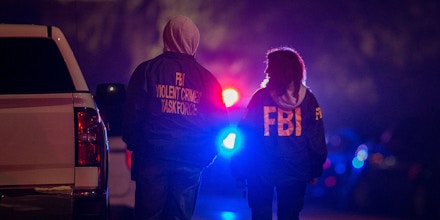
https://fbinewsreview.blogspot.com/2019/09/michael-novakhov-sharednewslinks-how.html
__________________________________________________________
In an interview with The Intercept, German explained that the idea for the project began taking shape years ago, as he grew increasingly concerned about the media’s coverage of the FBI. “It was very sporadic,” German told me. “An abuse here, an abuse there.” Nobody seemed to be digging into the structural problems in the FBI. If they did, German explained, they would see that these seemingly one-off events were indicative of patterns linked to the bureau’s institutional history, its self-perception and attitude following September 11, and the demographic composition of its workforce.
...
“We can’t work on effective solutions if we don’t really understand the problem,” German said. “My goal with this book was to make sure that we’re understanding the structural and attitudinal problems that allowed the FBI to be a threat to democracy rather than protective of it.”
Michael Novakhov – SharedNewsLinks℠ – In Brief
Trump Investigations News In Brief – http://feed.informer.com/share/CGD4YTZW07
Trump Investigations on RSS Dog
Michael Novakhov – SharedNewsLinks℠ | on RSS Dog
Michael Novakhov – SharedNewsLinks℠ – In Brief
Trump Investigations News In Brief – http://feed.informer.com/share/CGD4YTZW07
Trump Investigations on RSS Dog
Michael Novakhov – SharedNewsLinks℠ | on RSS Dog

https://fbinewsreview.blogspot.com/2019/09/michael-novakhov-sharednewslinks-how.html
__________________________________________________________
In an interview with The Intercept, German explained that the idea for the project began taking shape years ago, as he grew increasingly concerned about the media’s coverage of the FBI. “It was very sporadic,” German told me. “An abuse here, an abuse there.” Nobody seemed to be digging into the structural problems in the FBI. If they did, German explained, they would see that these seemingly one-off events were indicative of patterns linked to the bureau’s institutional history, its self-perception and attitude following September 11, and the demographic composition of its workforce.
...
“We can’t work on effective solutions if we don’t really understand the problem,” German said. “My goal with this book was to make sure that we’re understanding the structural and attitudinal problems that allowed the FBI to be a threat to democracy rather than protective of it.”
Shared stories are on their way ...
| ||||
| How FBI Increased Its Power After 9/11 and Put Trump in Office | ||||
Mike German, a former FBI special agent, had four years on the job when he took an assignment that would change his life forever. It was 1992. A jury in Simi Valley, California, had just acquitted a group of mostly white Los Angeles police officers for the videotaped beating of a black construction worker named Rodney King. Decades of pent-up anger directed at one of the nation’s most notoriously racist police departments spilled out on city streets in a six-day convulsion that left more than 60 people dead. Amid the unrest, white supremacists in southern California saw an opportunity, believing that the riots could be used as cover to launch a race war.
The FBI’s Los Angeles office got wind of the plans, and when his supervisor floated the idea of infiltrating the groups, German, who was in his late 20s at the time, enthusiastically volunteered. For more than a year, German lived undercover, embedded in a network of neo-Nazi skinheads plotting the bombing of a popular African-American church and the assassination of prominent Jewish and black figures, including King himself.
German’s investigation led to multiple prosecutions on federal weapons and bomb-making charges and marked the beginning of a series of undercover operations inside the world of far-right American extremists that spanned more than 12 years. It was a critical time for the FBI, with the trifecta of Ruby Ridge in 1992, Waco in 1993, and Oklahoma City in 1995 having called into serious question the bureau’s domestic counterterrorism tactics and the blowback they had incurred. By the time the new century rolled around, it seemed that the FBI was on track for critical reforms.
A bright, clear morning in September 2001 changed that.
German was assigned to the FBI’s Atlanta office when the planes hit the Twin Towers. Three years later, he was a civilian, having resigned from the FBI after he blew the whistle on a terror investigation gone wrong and became the target of an internal retaliation campaign. In the decade and half since, he has emerged as a critical voice in the post-9/11 era, challenging the war on terror at home and abroad.

Former FBI agent and writer Michael German photographed near Wall Street, in downtown Manhattan, on September 13, 2019.
Photo: Sasha Maslov for The Intercept
As a fellow at the Brennan Center for Justice, German has been a go-to source for journalists (The Intercept included) on the civil liberties beat, consistently providing nuanced analysis on matters of law enforcement and justice, often as they pertain to his old employer. In his new book, “Disrupt, Discredit, and Divide: How the New FBI Damages Democracy,” German brings his insights to a wider audience, telling the story of how FBI leadership capitalized on the September 11 attacks, escaping a much-needed internal reckoning to become the most powerful and secretive domestic intelligence agency the country has ever known.
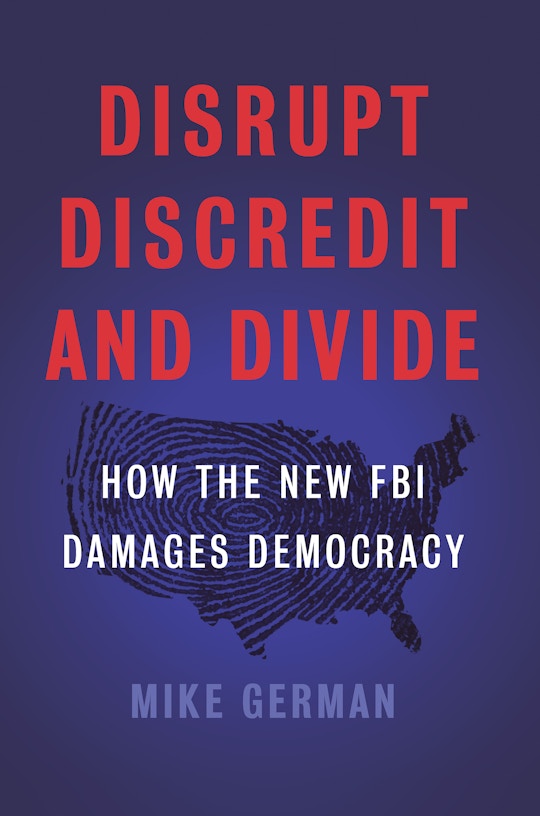
Image: Courtesy of The New Press
In an interview with The Intercept, German explained that the idea for the project began taking shape years ago, as he grew increasingly concerned about the media’s coverage of the FBI. “It was very sporadic,” German told me. “An abuse here, an abuse there.” Nobody seemed to be digging into the structural problems in the FBI. If they did, German explained, they would see that these seemingly one-off events were indicative of patterns linked to the bureau’s institutional history, its self-perception and attitude following September 11, and the demographic composition of its workforce.
While his personal experiences are deployed as needed, the real story in “Disrupt, Discredit, and Divide” is German’s methodical and damning account of a powerful American institution chronically failing to live up to its mission. The book comes at a critical moment. Driven by a series of high-profile attacks and the president’s ties to white nationalism, the FBI’s relationship to German’s old beat — domestic counterterrorism investigations involving white supremacists — has returned to the media spotlight. At the same time, former FBI directors Robert Mueller and James Comey, who ran the FBI during its troubled post-9/11 years, have ascended to near god-like status in some liberal corners for their respective roles in the Russia investigation affair.
“We live at an interesting time where there’s such polarization over every issue but particularly over the FBI and what role it plays in our society, where liberals who previously had been skeptical of the FBI now are sort of champions of the FBI, and conservatives who were full supporters of empowering law enforcement are now skeptical,” German said. “I’m hopeful that a more nuanced view that isn’t influenced by the politics of either side, but is rather just presenting facts on how this agency actually works, and the problems that are created as a result, will be helpful to a larger effort to conduct a comprehensive examination of where we are almost 20 years after 9/11.”

Demonstrators hold an upside down American flag as they stand in the street while protesting the shooting death of 18-year-old Michael Brown in Ferguson, Missouri, on November 22, 2014.
Photo: Justin Sullivan/Getty Images
Targeting Political Dissent
As an army brat who came of age during the Vietnam War, German writes that he “had no illusion that the government always did the right thing, or did it well.” Still, from the time he was a kid, an FBI agent was all he ever wanted to be. German was moved by President Theodore Roosevelt’s original 1909 vision of a Department of Justice investigative agency established to “secure the conviction of the wealthiest and most formidable criminals” in the country, especially those protected by “wide political and social influence.” He writes: “The idea of using the law to protect the most vulnerable in society is what drew me to the FBI.”
At its heart, German’s book is about the FBI’s failure to reflect those principles.
He documents how in the wake of 9/11, FBI leadership embraced a discredited theory of radicalization that had the convenient side effect of ignoring the bureau’s own shortcomings in the run-up to the attacks, while simultaneously laying the groundwork for demands for expanded powers and authorities. The FBI also turned on its own, particularly in cases when agents raised concerns about the legality of operations or failed to match up with the bureau’s overwhelmingly white male demographics. In case after case, German offers examples of the FBI zeroing on agents, particularly Muslim agents and those of Asian descent, as potential threats and would-be turncoats, railroading promising careers without a whiff of evidence.
German chronicles the FBI’s shift from a law enforcement agency concerned with criminal investigations, to an intelligence agency primarily concerned with counterterrorism. He focuses heavily on the bureau’s impact in Muslim communities, where civil society groups were targeted as supporters of terrorism, precarious immigration status became a tool to push people into becoming informants, and agents used their expanded authorities to open “assessments” on individuals in the absence of suspected crimes. It was during this same period, German observes, that the FBI began accepting and integrating the discredited theories of an “Islamophobia network” in its official training materials, sending a message to bigots across the country that anti-Muslim hatred was a government-condoned philosophy.
While the September 11 attacks brought new powers, the FBI of the last two decades has also carried on its longstanding tradition of targeting leftists, anarchists, and environmental activists, German writes. So-called eco-terrorism, he points out, was for much of that time the FBI’s No. 1 domestic terrorism priority, despite the fact that the movement has never claimed a life. For German, that contradiction is precisely the point of the book. While the FBI has devoted enormous time, energy, and resources to filling unconstitutional watchlists with Muslim names and directing its agents to focus on bogus national security threats such as “black identity extremists,” important crimes that the bureau is supposed to enforce have fallen by the wayside.
War without end, the impotence of Congress, and the financial collapse have all contributed to Americans’ plummeting faith in the government, German notes, but the FBI’s post-9/11 evolution also deserves a place on that list. “I believe the FBI contributed to this breakdown of public trust in government institutions, not just by who it chose to target for disruption but, just as important, who it didn’t,” he writes.
Take the torture program. German writes that experienced FBI interrogators, who understood that torture produces unreliable information in addition to being illegal, were well-positioned to take the investigative lead following 9/11. Instead, the FBI took a back seat to the CIA, even as it became clear — at times through concerns raised by its own agents in the field — that the intelligence agency was breaking the law. But it’s not just the classified programs devised behind closed doors in Washington, D.C. The FBI has a mandate to enforce civil rights violations by police officers. According to German, if data on police killings and violence disproportionately impacting people of color says anything, it’s that the FBI could keep itself quite busy investigating police abuses — if that’s what FBI leadership wanted to do.
Instead, recent history has shown the FBI targeting Black Lives Matter and partnering with a private intelligence company that infiltrated the Standing Rock protests. In the case of Standing Rock specifically, German notes, it’s worth remembering that it’s also part of the FBI’s mandate to prosecute crimes against Native Americans on reservations — there, too, the bureau has fallen short. “Though too often ignored as crime victims,” German writes, “Native Americans draw unwarranted law enforcement attention when they protest government policies that negatively impact their communities.”
From Pine Ridge to Wall Street, the FBI’s prioritization problems run deep, German argues. In 2004, he writes, FBI headquarters received repeated warnings that mortgage fraud was an “epidemic” with the potential to trigger an economic crisis. As FBI director, Mueller had transferred hundreds of white-collar crimes investigators to counterterrorism. “Congress denied the FBI’s requests for more agents,” German writes, meanwhile, “Mueller refused to reprioritize his national security assets.” Even when there was evidence that financial institutions were engaged in actual criminal activity, German writes, executives didn’t go to prison.
“Like J. Edgar Hoover’s bureau,” he argues, “The new FBI saw protecting the establishment as its mission and disrupting the political mobilization of dissident and disenfranchised communities as its most potent weapon.”
Left/top: Members of the Ku Klux Klan are escorted out of a planned rally protesting the removal of a statue of Confederate General Robert E. Lee, in Charlottesville, VA, on July 8, 2017. Right/bottom: Members and supporters of the National Socialist Movement, one of the largest neo-Nazi groups in the US, hold a rally on April 21, 2018 in Newnan, Georgia.Photos: Chet Strange/Getty Images; Spencer Platt/Getty Images
The Rise of the Right
In 2016, German witnessed something disturbing. A Ku Klux Klan rally in Anaheim, California, was interrupted by a group of anti-racist protesters. Three protesters were stabbed by a Klansman. Initially, five Klansmen were arrested, though the police later released them, taking the position that they had acted in self-defense. Meanwhile, seven of the protesters were charged with a variety of crimes.
In years past, law enforcement would keep racist groups and anti-racists apart. In this case, they didn’t. As this pattern repeated itself again and again through the election and after Donald Trump’s inauguration, it became clear to journalists and researchers that the same far-right figures, some with records of serious criminal violence, were popping up again and again at the events. And yet the FBI appeared loath to take action. With scenes from Ferguson and Standing Rock still fresh in the public consciousness, German writes, “It was perplexing to watch convicted felons engaging in unpoliced violence at these white nationalist rallies and, rather than being arrested, becoming featured speakers at the next rally.”
In telling the story of the FBI’s failure to confront the threat of white supremacist violence, German argues that it’s not a lack of authorities, but an absence of institutional interest in recent years to take basic steps to understand the problem — let alone bring and close cases. “After 9/11, I noticed the FBI officially de-emphasizing white supremacist violence,” German writes, despite the fact that extremists typically described as part of the far right “kill more people in an average year than any other terrorist groups.”
During the Obama administration, which saw a surge in far-right group membership and activity, FBI analysts were reporting a decline in white supremacist violence even as outside researchers, like the Combating Terrorism Center at West Point, were reporting the exact opposite. For German, the resurgence of far-right violence and Trump’s rise to power cannot be divorced the security politics and failures of post-9/11 America. “The Trump campaign grasped that fifteen years of political polarization and constant terror warnings had created an appetite for a strongman candidate, which he could whet with messages of fear and anger,” he writes.

The operations floor at the National Counterterrorism Center in Tysons Corner, Virginia, June 8, 2011.
Photo: Melina Mara/The Washington Post via Getty Images
Bound up in the narrative of Trump’s ascent is, of course, one of the biggest FBI stories of all time: the Russia investigation. Here, German argues, the FBI’s running list of post-9/11 failures ascended to new heights. German’s assessment of former director Comey’s actions through this period is perhaps the most withering section of his book. Not unlike Trump, Comey had a tendency to take a blowtorch to the norms and obligations he was bound by. On top of that, German writes, “The available evidence suggests Comey’s FBI did not pursue allegations that Russia was illicitly supporting the Trump campaign with the necessary urgency, at least if you believe that a hostile foreign nation’s effort to influence a U.S. presidential election presents a national security threat of the highest dimension.”
In German’s view, the Russian government either successfully conspired with the Trump campaign to undermine the most important presidential election in modern American history, or it didn’t. “If it did, the FBI’s and its partner agencies’ inability to interdict the plot before a corrupted election elevated an illegitimate president to power is an intelligence failure of a magnitude rivaled only by the failure to quickly bring the conspirators to justice afterward,” he writes. “If not, the FBI and other intelligence agencies have used their covert intelligence powers to undermine a duly elected U.S. president and his administration in ways that would make J. Edgar Hoover blush. Either possibility suggests a significant part of our government has forfeited its legitimacy and is no longer serving in the public interest.”
As for Trump himself, German sees in the president a man whose entire life and business history, not to mention his associates, reeks of potential criminal liability. And still, he seemed to generate a considerable amount of wealth and obtain the most powerful position in the world without a serious look from the FBI along the way. “The practical immunity Trump and his retinue enjoyed as they amassed wealth and power also gives lie to his supporters’ contention that Mueller, Comey, and the FBI somehow had it in for Trump and manufactured a case against him,” German writes. “The failure to prioritize the economic crimes of the politically powerful left the nation vulnerable to a hostile foreign nation’s effort to delegitimize U.S. elections. This is exactly the sort of threat a domestic intelligence agency is supposed to protect against.”
German still believes in the FBI’s capacity to be a force for good. At the same time, he recognizes that many people in the advocacy community he’s become a part of in the last 15 years do not. “It’s easier for me to have more confidence in the ability to reform law enforcement institutions because I’m not the prime target of abusive law enforcement actions,” he acknowledged. German sees his role in building a more just future as discreet — he knows the FBI and has a deep understanding of where its problems come from. What members of civil society do with that information is up to them.
“We can’t work on effective solutions if we don’t really understand the problem,” German said. “My goal with this book was to make sure that we’re understanding the structural and attitudinal problems that allowed the FBI to be a threat to democracy rather than protective of it.”
| ||||
| Michael Novakhov - SharedNewsLinks℠ How FBI Increased Its Power After 9/11 and Put Trump in Office - Google Search - 10:06 AM 9/14/2019 | ||||
Michael Novakhov - SharedNewsLinks℠ How FBI Increased Its Power After 9/11 and Put Trump in Office - Google Search - 10:06 AM 9/14/2019
https://fbinewsreview.blogspot.com/2019/09/michael-novakhov-sharednewslinks-how.html __________________________________________________________
Michael Novakhov – SharedNewsLinks℠ In 25 Posts
Michael Novakhov – SharedNewsLinks℠ | Michael Novakhov – SharedNewsLinks℠ – on RSS Dog | Michael Novakhov – SharedNewsLinks℠ – In Brief | Trump Investigations News In Brief – http://feed.informer.com/share/CGD4YTZW07 | Trump Investigations News – Page Link – News In Brief | Tweets | Videos | Michael Novakhov – SharedNewsLinks℠ – Page
|
| Michael Novakhov - SharedNewsLinks℠ |
|---|
| How FBI Increased Its Power After 9/11 and Put Trump in Office - Google Search |
Michael Novakhov – SharedNewsLinks℠ In 25 Posts
Michael Novakhov – SharedNewsLinks℠ | Michael Novakhov – SharedNewsLinks℠ – on RSS Dog | Michael Novakhov – SharedNewsLinks℠ – In Brief | Trump Investigations News In Brief – http://feed.informer.com/share/CGD4YTZW07 | Trump Investigations News – Page Link – News In Brief | Tweets | Videos | Michael Novakhov – SharedNewsLinks℠ – Page
| Michael Novakhov - SharedNewsLinks℠ | ||
|---|---|---|
| How FBI Increased Its Power After 9/11 and Put Trump in Office - Google Search | ||
2 hours ago
Images may be subject to copyright. Find out more
Related images
|
Michael Novakhov – SharedNewsLinks℠ – In Brief
Trump Investigations News In Brief – http://feed.informer.com/share/CGD4YTZW07
Trump Investigations on RSS Dog
Michael Novakhov – SharedNewsLinks℠ | on RSS Dog
Michael Novakhov – SharedNewsLinks℠ – In Brief
Trump Investigations News In Brief – http://feed.informer.com/share/CGD4YTZW07
Trump Investigations on RSS Dog
Michael Novakhov – SharedNewsLinks℠ | on RSS Dog
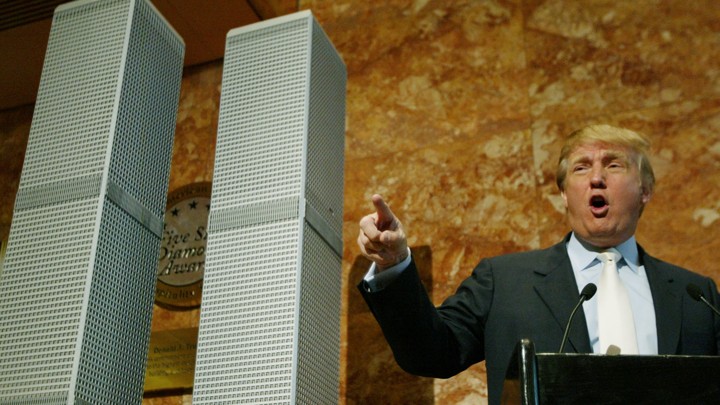


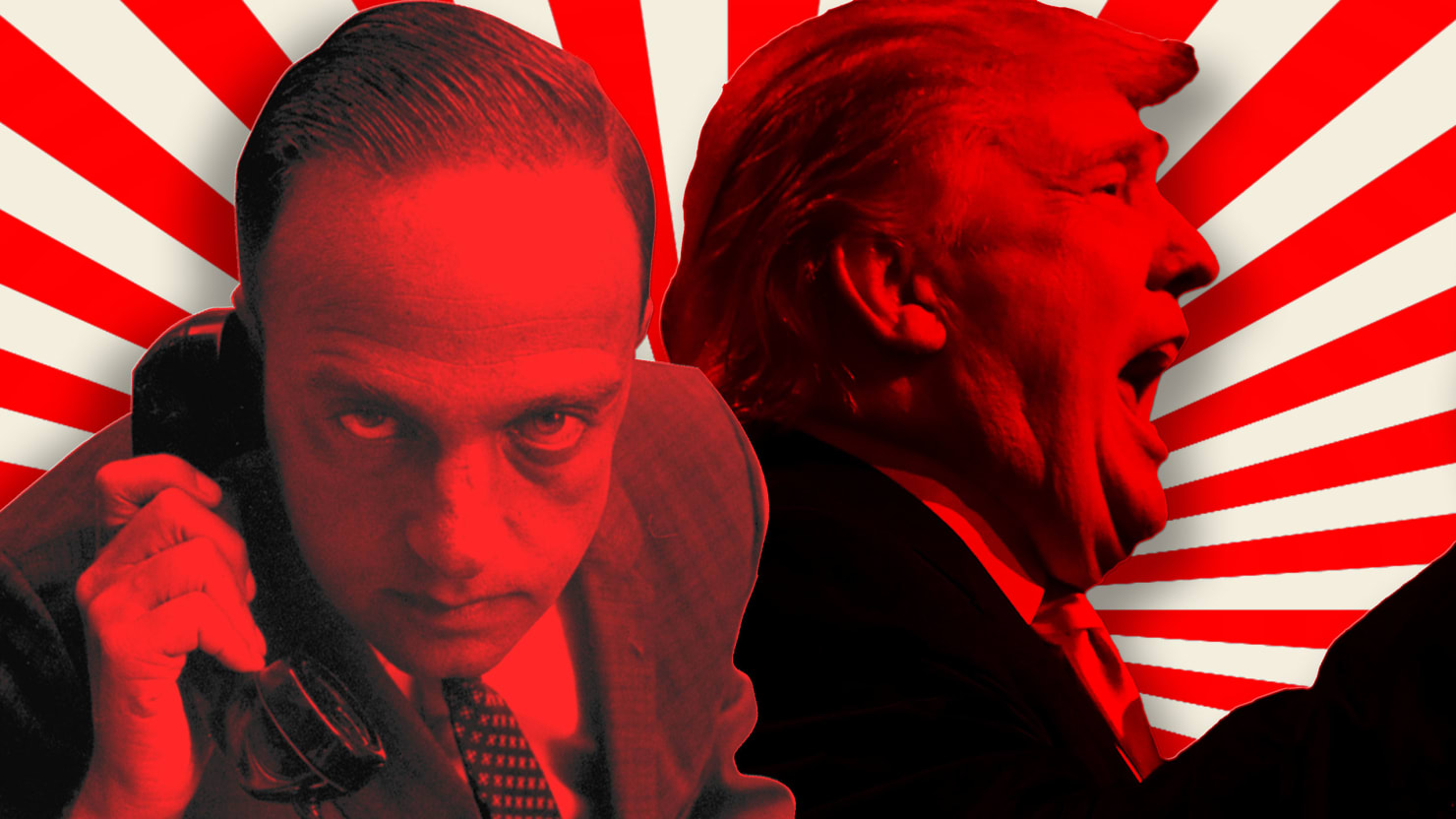
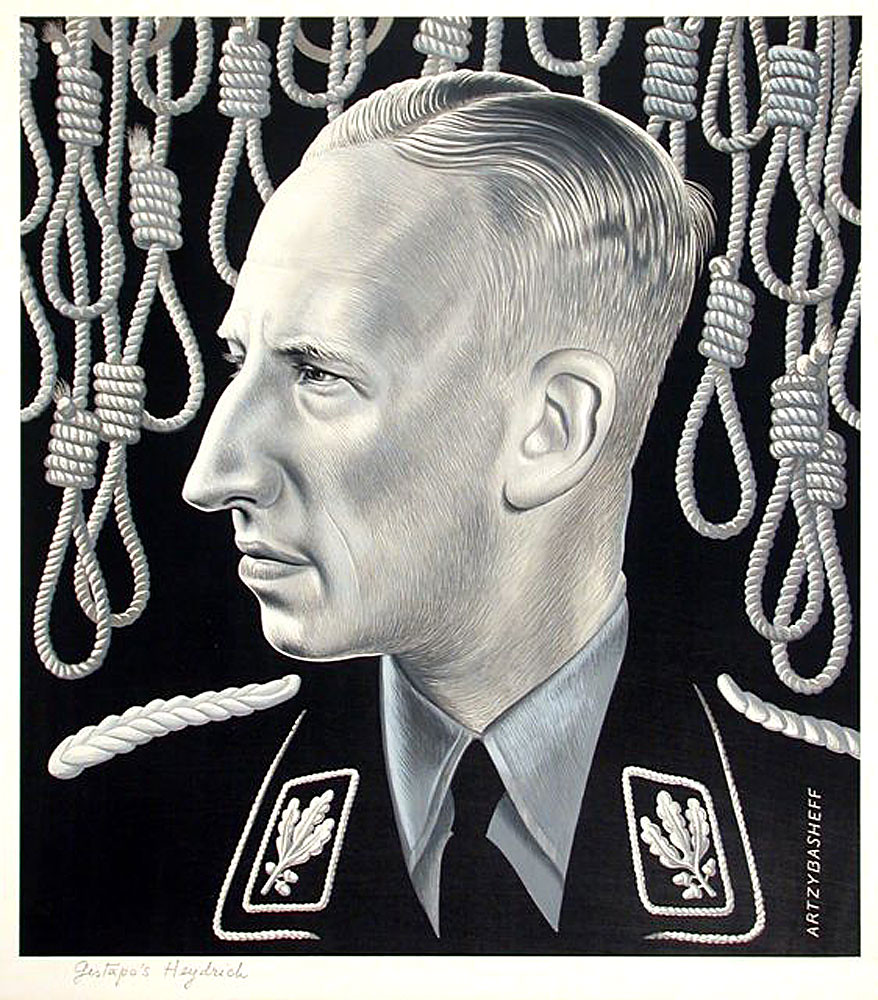

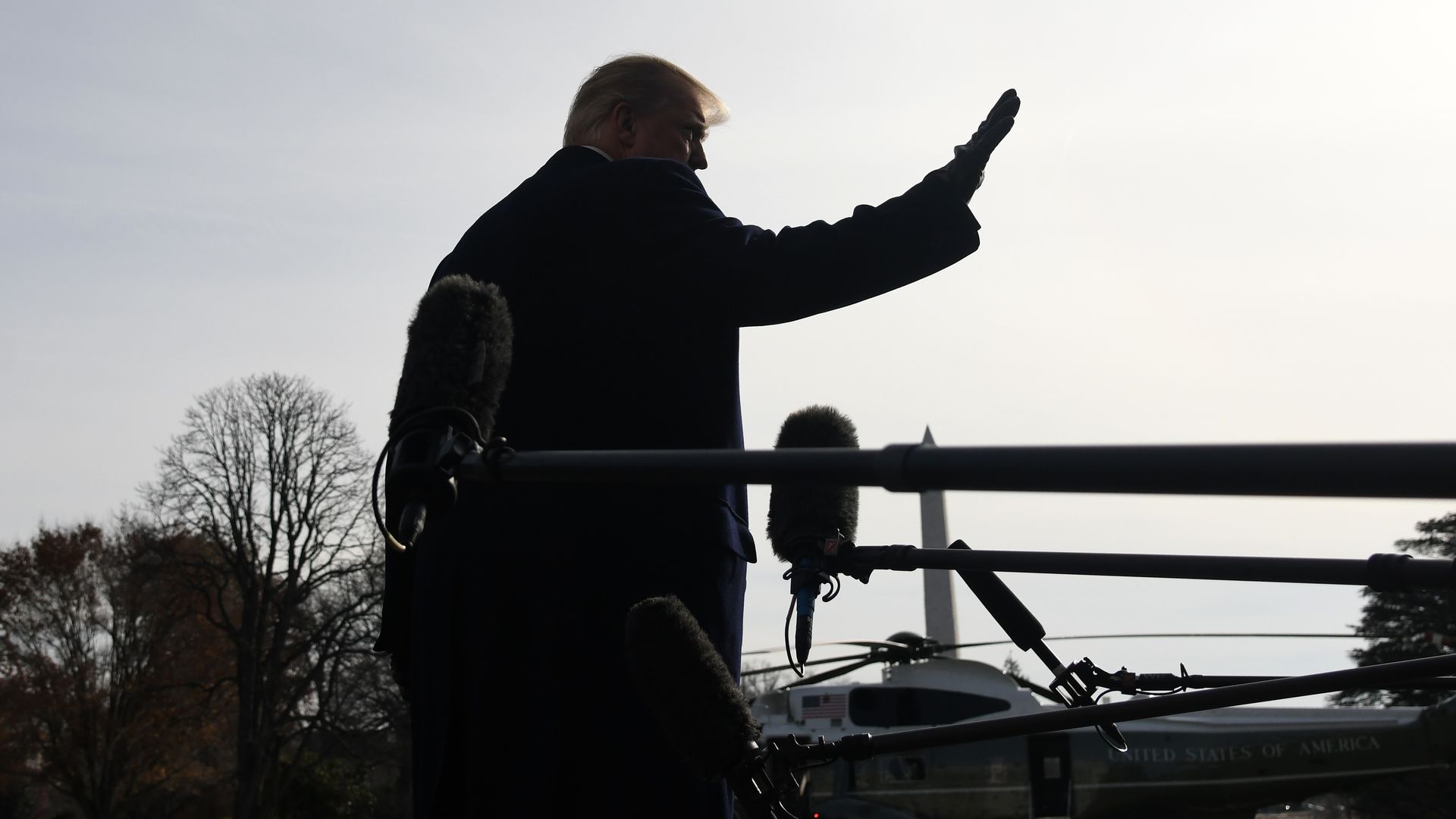
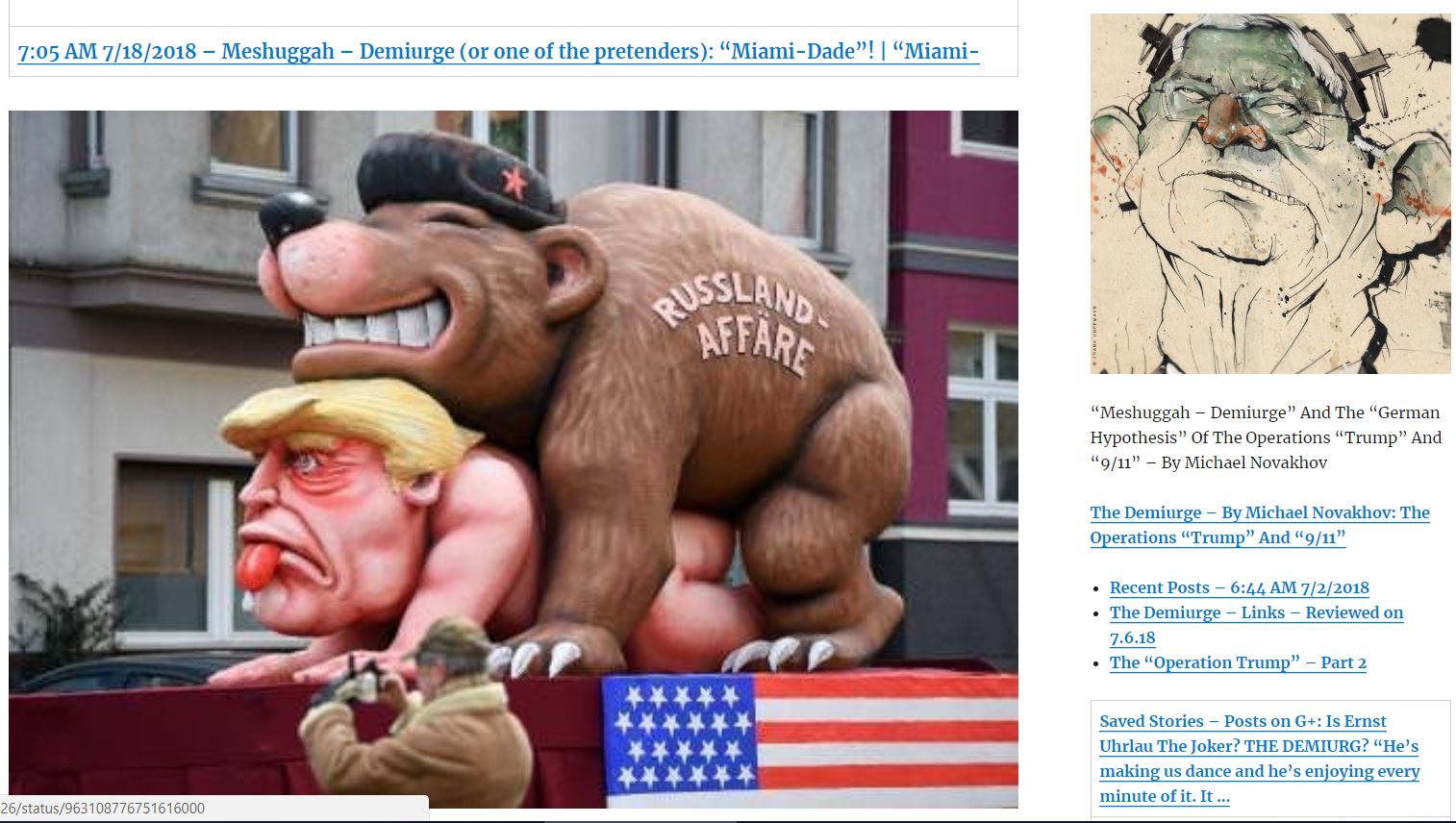









Comments
Post a Comment